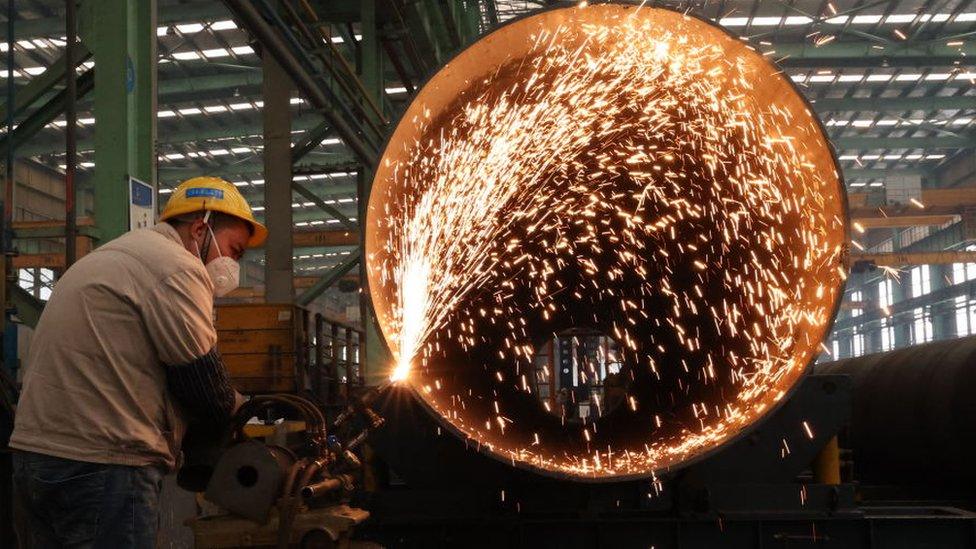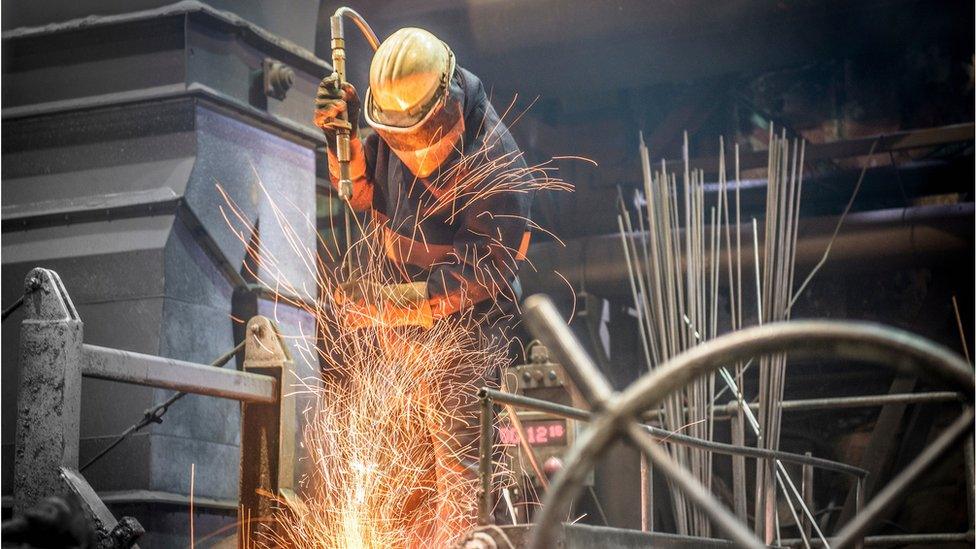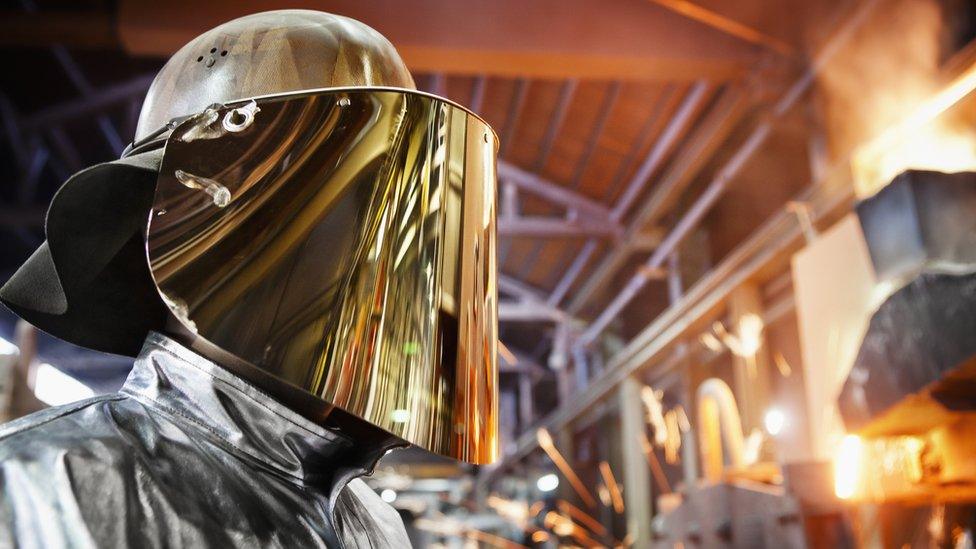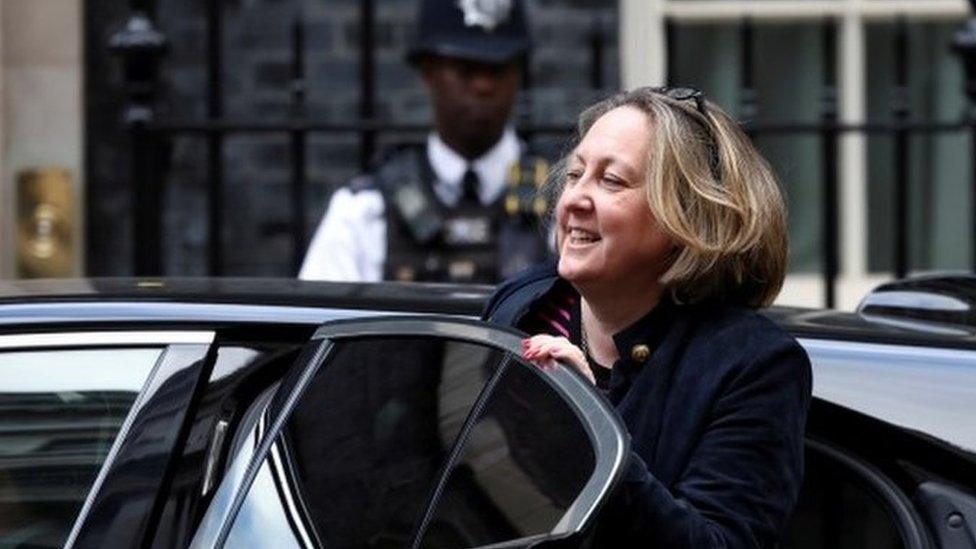US and Japan agree to cut Trump-era steel tariffs
- Published

The US and Japan have agreed to remove Trump-era tariffs from around 1.25 million metric tonnes a year of Japanese steel imports.
Under the deal, Japan says it will help to tackle excess steel supplies, which push down prices.
The agreement is aimed to stamp out "unfair practices" in the global steel industry, which is dominated by China.
The Biden administration has already made a similar deal with the EU but tariffs remain in place on UK imports.
The agreement with Japan, which takes effect on 1 April "will further help us rebuild relationships with our allies around the world as we work to fight against China's unfair trade practices," US Commerce Secretary Gina Raimondo said.
During Donald Trump's presidency Washington imposed tariffs on a number of countries, citing cheap metal imports as a national security threat.
Under the new deal, the US will stop charging a 25% levy on Japanese steel imports, excluding aluminium, up to a 1.25m metric tonne annual threshold.
Meanwhile, Tokyo said it will take steps within six months to support what the US and Japan see as a fairer steel market.
These include taxing goods believed to be priced below market value, and a levy to offset subsidies that an exporter has received.
The announcement was cautiously welcomed by investment experts.
"This lifting of Trump-era tariffs on steel is consistent with expectations that the Biden administration would align its geo-political and trade alliances," Vishnu Varathan, head of economics and strategy at Mizuho Bank, told the BBC.
"However, the reality is that even the initial tariffs did not impact China too badly. So, this deal may really be more about reparations of relations in a longer trade game," he added.
On 1 January, a deal between the Brussels and Washington took effect which allows tariff-free exports of EU steel and aluminium to the US.
However, the UK has not yet reached an agreement to lift tariffs imposed on its steel and aluminium exports during the Trump era.
Last month, US Trade Representative Katherine Tai said the issue would be addressed "when the time is right".

You may also be interested in:
Tata says guidance is needed to safeguard thousands of jobs
- Published12 January 2022

- Published4 January 2022

- Published9 December 2021
